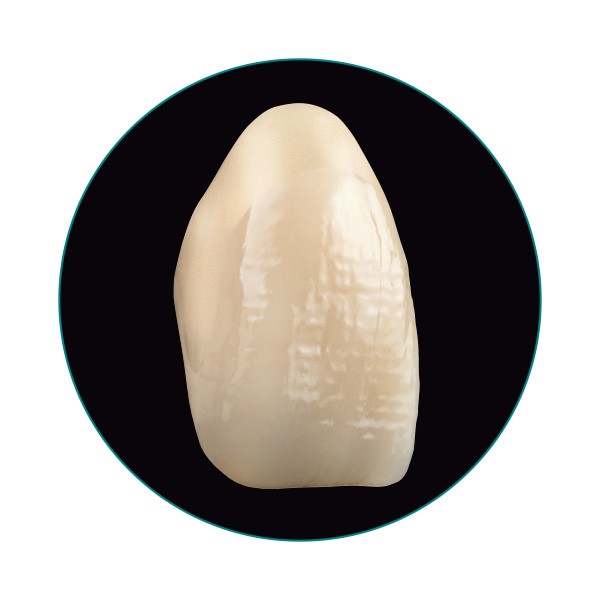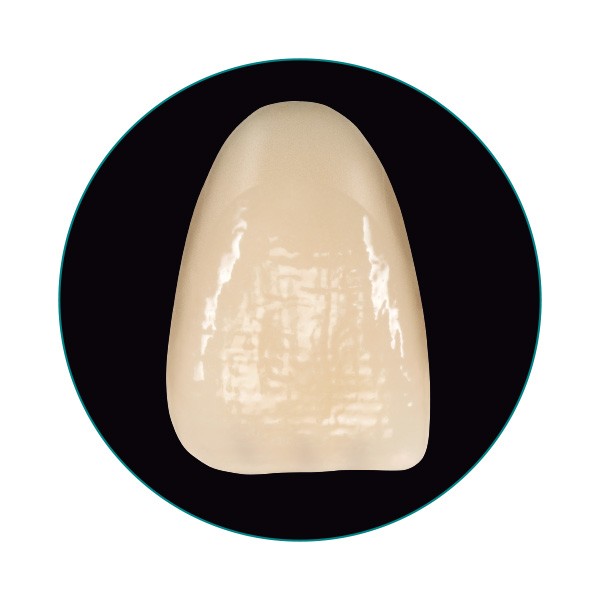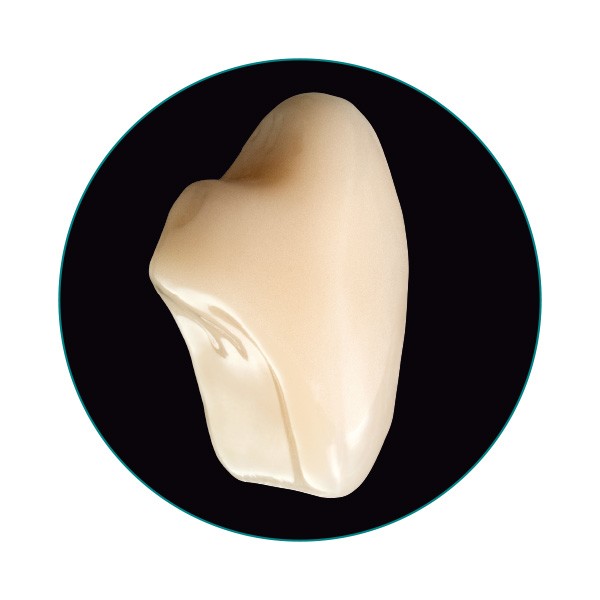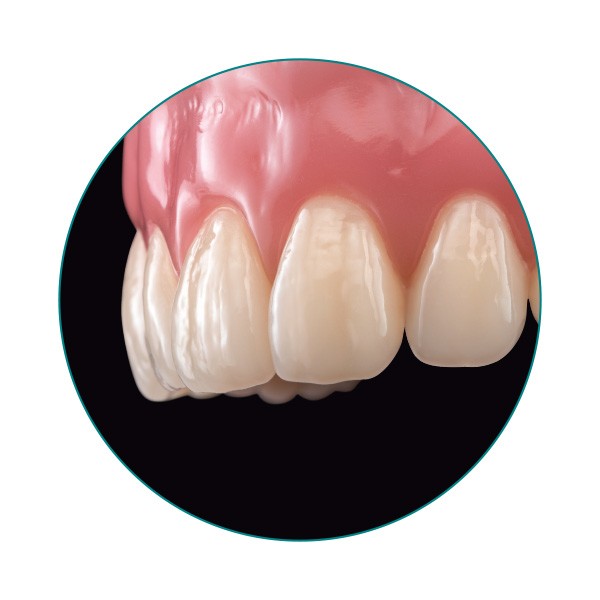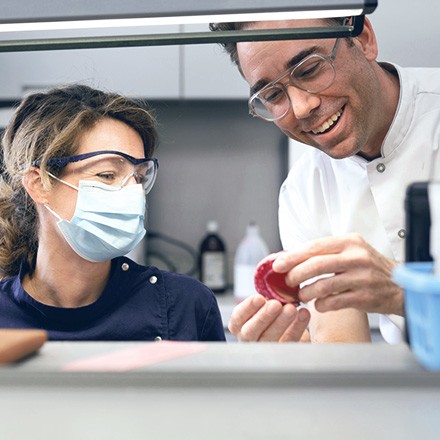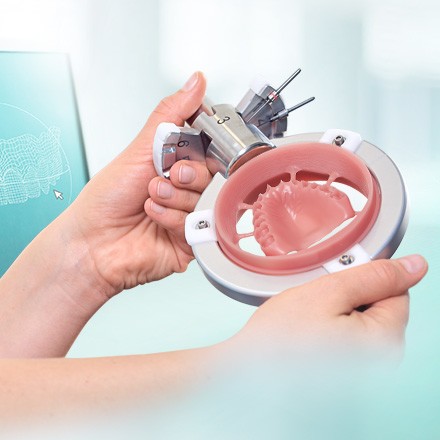Many dental technicians have several questions about digital dentures: Are digital dentures just a trend or is this a model for the future of my dental laboratory? What experience have fellow practitioners gathered who have already started fabricating dentures digitally? You can find the answer to these questions and more here. Read exciting field reports from peers, learn how to fabricate digital dentures without compromising esthetics and learn what to consider to ensure your successful start with digital full dentures.
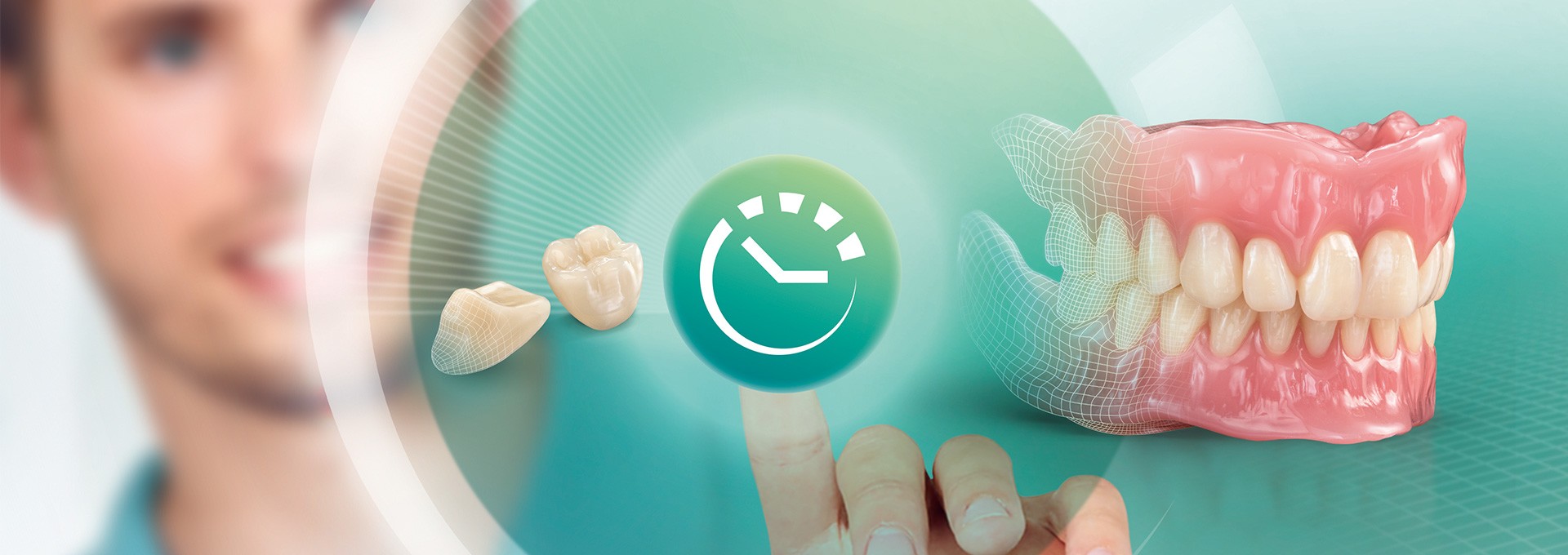
Digital Dentures from A to Z
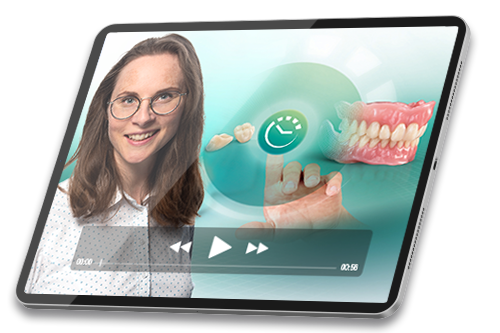
The Path to Success "Digital Dentures for Beginners"
Learn how digital dentures help advance your lab and how to get started successfully with the three-step roadmap.
Experience reported by colleagues
How to get more out of your lab with digital dentures
Many dental technicians wonder whether the technology is already advanced enough to make it worthwhile for them to enter the field of digital full dentures. In this case, it is valuable to have an experienced peer who is already using the new technology answer important questions. Dental technician Okke Kamps (Uden, Netherlands) is one of these peers who has successfully established the digital fabrication of full dentures in his laboratory over the past few years.
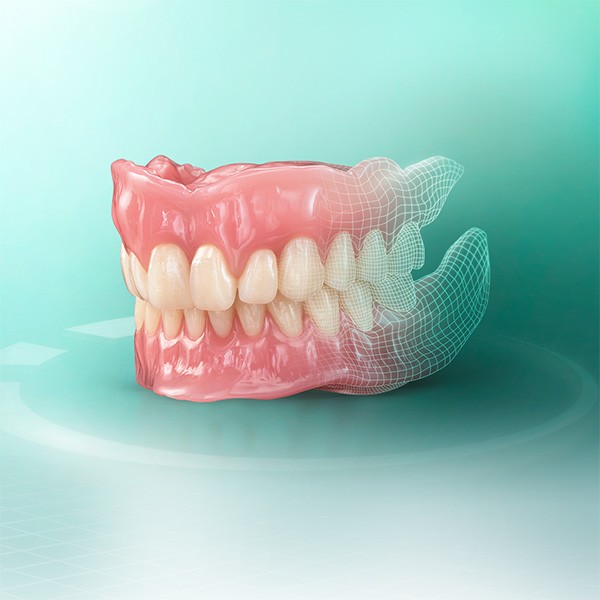
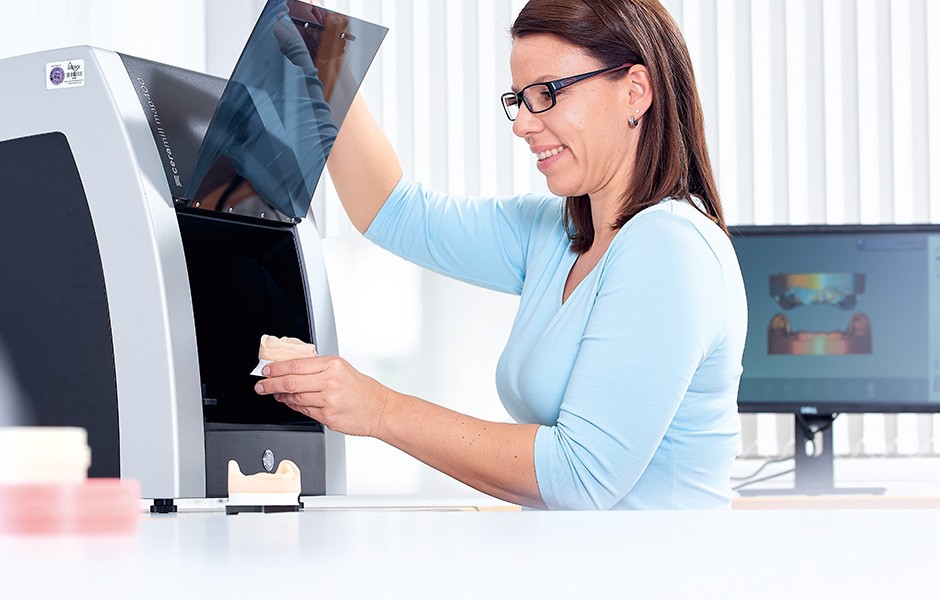
Investing in digital full dentures pays off
"At first you only see the cost of your investment in digital dentures," says Okke Kamps. However, the numbers from the practice now clearly justify the digital approach. While Kamps used to only be able to fabricate one denture per day using conventional production methods, he can now make three to four "digital" dentures. On top of that, fewer treatment appointments are needed for patients. Here are his top five reasons why investing in digital prosthetics pays off:
Five great reasons for introducing digital full dentures
-
Higher efficiency: produce up to four dentures per day instead of just one
-
Speed: treat patients in fewer sessions
-
Reliability: consistently achieve great esthetic results
-
Quality assurance: more time for quality testing
-
Easy Workflow
The dental technician has the following advice for fellow practitioners who also want to get started with digital full dentures: "Start with small steps. When investing in digital dentures, be prepared to take a few risks. Consider partnerships, for example, with a milling facility."
"Getting started with digital dentures was not easy, but today the digital process is the most efficient way for us to produce full dentures."
What are digital dentures capable of?
Digital or conventional dentures – which kind is better?
How nice would it be to be able to produce digital dentures at the simple touch of a button. But how good are the esthetic results? You may have seen dentures made digitally in the past and been disappointed with the esthetic results. It does not have to be that way! To help you create digital dentures without compromising the esthetics, you should consider two aspects:
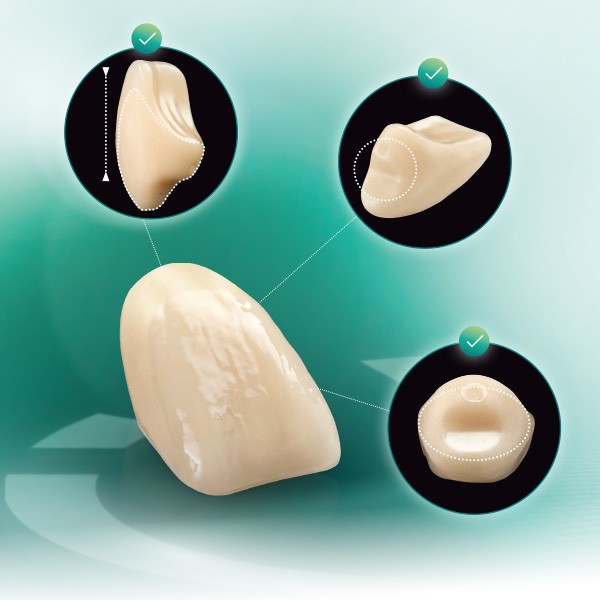
1. The material used to make teeth or dental arches.
Modern prefabricated teeth for digital full dentures are made of polymer-based materials, sometimes with a silica-reinforced matrix. Beautifully layered, these teeth offer high quality and esthetic results. In contrast, when milling a dental arch from PMMA materials (often monochrome blanks), the light-optical properties and the achievable esthetic results are often limited. Even printer resins for the additive manufacturing of dental arches still have a lower quality level today, compared to proven denture teeth.
2. The possibilities for design and the individual tooth position
When milling or printing the complete dental arch, the possibilities of modifying the tooth position or the option of repositioning (e.g., after the fitting) are limited in many cases. If you use prefabricated teeth on the other hand, the options for individualization are usually endless.
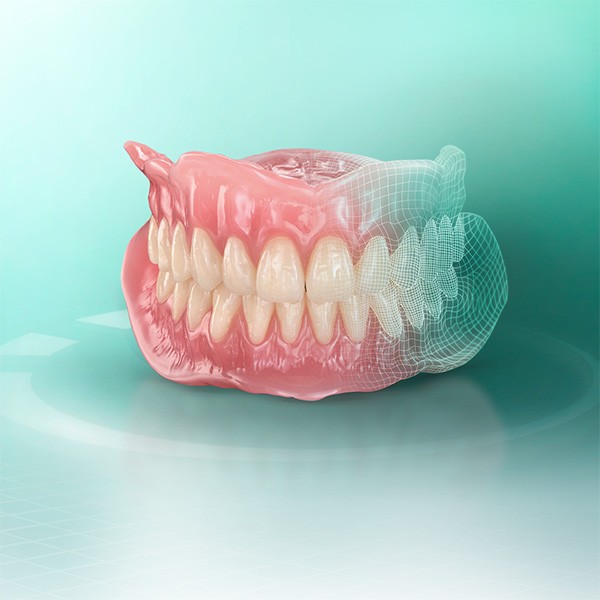
By choosing the right material and fabrication process, there is no need to compromise on esthetics, even with digital full dentures.
Digital denture: First steps
Digital dentures – how to ensure a successful start
Want to get started with digital dentures, but not sure how to do it? There is only one solution: find out more here. Digital dentures offer many advantages – for you, the dentist and the patient. However, there is now such a wide range of processes, materials, and manufacturers that it can be difficult to keep track of them all. No problem, we will guide you through the process in three steps.
You know which full dentures you can create with your technical skills. That is why you should only choose technologies that can do the job at least as well as you can yourself.
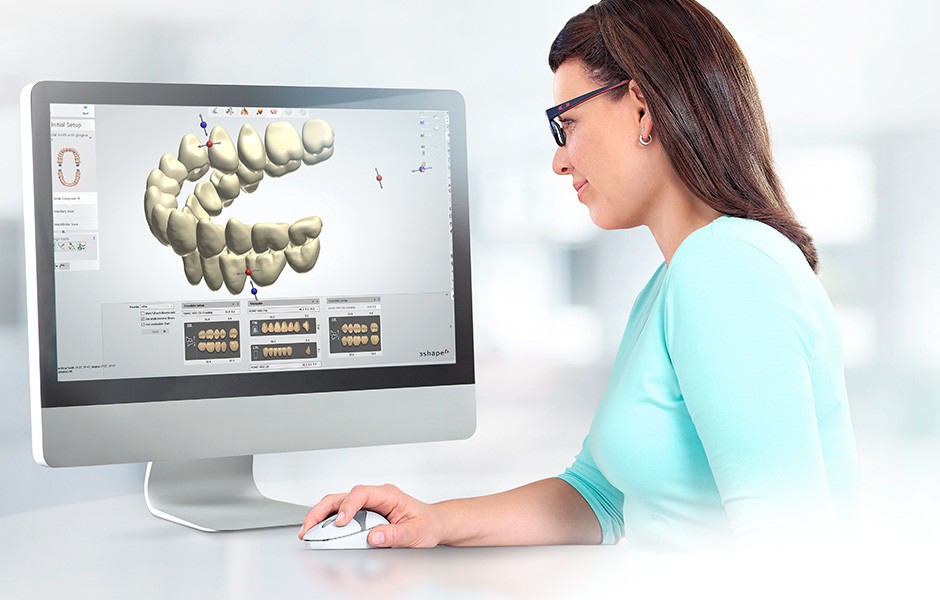
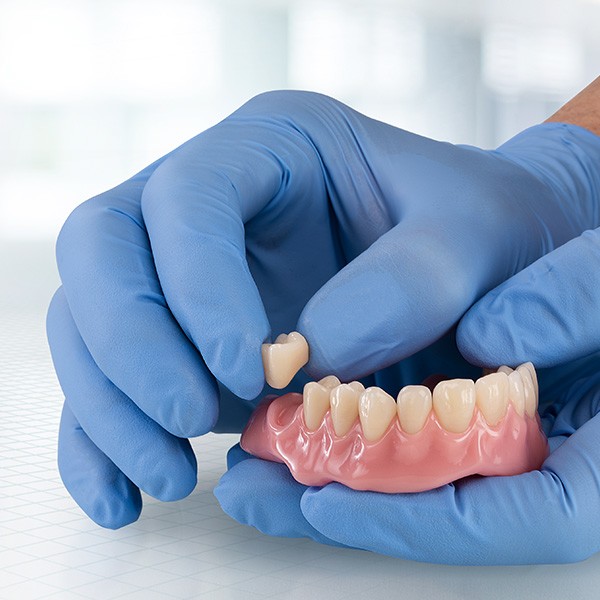
1. Step: decide which process you want to use for fabrication
You can mill or print dentures or combine both processes. With one-piece fabrication, for example, dentures are made from a single piece (monolithic). With multi-piece fabrication, only the denture base is milled or printed and prefabricated teeth are then bonded into the cavities.
2. Step: select the appropriate hardware and software
You can often rely on your technical laboratory equipment. For CAM fabrication with VITA VIONIC materials, for example, you simply use one of the conventional milling units (3+2-axis, 5-axis simultaneous, and 5-axis milling units). 3Shape and exocad offer special denture modules for designing dentures. Be sure to not only check the software, but also whether the integrated tooth libraries allow you to use a variety of setup concepts and angle classes.
3. Step: know the most important steps for digital fabrication
The first step is the digital setup of the dentures based on the scan and the digital model analysis. Once the dentures have been set up, the try-in is produced in a milling or printing process. Caution: With some methods, repositioning after try-in is only possible with a considerable amount of effort! Finally, (in the case of the multi-part procedure) you fabricate the definitive denture base with your CAM milling unit or 3D printer before then bonding in the prefabricated denture teeth.
VITA VIONIC denture tooth
With VITA VIONIC, you can now fabricate dentures at the touch of a button
Want to get started right away? All you need is the right material package? No problem! VITA Zahnfabrik offers you the full package: 1. prefabricated, "digital" VITA VIONIC VIGO denture teeth 2. VITA VIONIC BASE PMMA blanks for milling denture bases 3. the VITA VIONIC BOND bonding system for bonding the teeth in the cavities of the milled or printed base.
Digital dentures need a smart "digital" tooth
Digital dentures require a tooth that supports the digital fabrication process in the best way possible, while meeting high esthetic expectations at the same time. That is where the prefabricated VITA VIONIC denture tooth comes in. VITA VIONIC VIGO is a new generation of teeth made of SE polymer (polymer matrix reinforced with silica) designed for the digital fabrication of full dentures, with a vibrant interplay of shape and color.
Three reasons why you benefit from using the VITA VIONIC tooth:
You can increase your productivity
Economical fabrication without any manual/CAM reworking, thanks to a tooth design perfected for a digital workflow.
You can save time in your fabrication process
Time-saving finalization of the denture via adhesive bonding of the cervically sandblasted teeth in the base, without further auxiliary steps.
You achieve a natural appearance at the push of a button
Mimic nature using prefabricated teeth with a vibrant interplay of shape and color and ready-to-use digital setups at the touch of a button.

